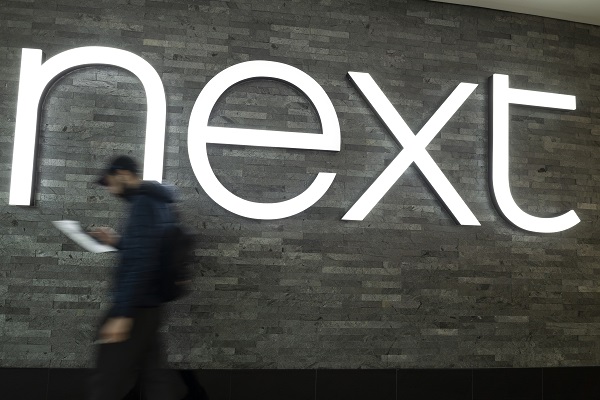Relief as Next avoids major shocks in Q3 results
2nd November 2022 08:17
by Richard Hunter from interactive investor
Next shares continue to recover from this year's 40% plunge to multi-year lows, responding well to a reassuring quarterly update. Our head of markets explains what's going on at the retail giant.

Fortunately, there are no further shocks in a brief trading update from Next (LSE:NXT) which reveals marginal growth during the third quarter of its financial year.
Following the unusual and unwelcome development of a profit warning at the half-year numbers, Next is maintaining its full-year pre-tax profit forecast at £840 million. Despite being marked down from a previous estimate of £860 million, the new figure would represent year-on-year growth of 2.1%, underlining the profitable yet challenging backdrop which Next is encountering.
- Read about: Free regular investing | Opening a Stocks & Shares ISA | Cashback Offers
Full-price sales are a central feature of the release, where Next has attempted to maintain prices for the sake of both margin and profits. For a mid-range retailer this runs the risk of losing customers to cheaper rivals, although the group has previously maintained that the general growth trend has been protected, albeit at a lower rate.
Online full-price sales slipped by 1.9% for the quarter, offset by growth of 3.1% at its retail outlets. The return to physical stores is one which has surprised some in the industry, with Next also reaping the benefit of a strong representation of outlets away from city centres.
Coupled with a strong showing from its finance interest income, which rose by 8.9%, overall full-price sales grew by 0.4%, or by 1.5% excluding the impact of Russia and Ukraine.
In typically cautious fashion, while maintaining its headline profit figure, Next has projected a decline of 2% in full-price sales for the remainder of the year, which of course will include the traditionally important festive period. In the meantime, and for retailers generally, the pressure continues to mount against a deteriorating economic backdrop.
The wider concerns of a cost-of-living crisis, an inflationary environment which is being tackled by rising interest rates and a more cost-conscious consumer, are all headwinds to be faced. At the same time, the overseas business has seen margins which remain light of the group’s own target due largely to supply pressures and cost inflation, although the more recent sterling weakness could provide a benefit.
More positively, the success of Next's LABEL offering provides lower risk scope for further growth, and the group maintains a healthy balance sheet which offers some flexibility.
Indeed, despite a flagging share price, the cash generation enabled a previous return to the payment of a dividend, where the current yield stands at 3.9%. With special dividends included, this figure is turbocharged to 7.1%, providing some solace to investors who have seen the capital value eroded.
- Why it could be party time for FTSE 100 and Glencore shares
- Will November mark beginning of a new bull run?
- Amazing share price surge turns FTSE 100 losers into winners
The share price decline of 39% over the last year compares to a drop of just over 1% for the wider FTSE100, as a broad brush markdown has ravaged retailers in general.
Even so, bulls of the stock remain undeterred, buoyed by a field which is opening up slightly as more competitors struggle or even go to the wall, Next’s own proven record of managing through economic crises, and an offering which does not totally exclude it from the reach of cost-conscious consumers. As such, the market consensus of the shares as a "buy" is likely to remain intact.
These articles are provided for information purposes only. Occasionally, an opinion about whether to buy or sell a specific investment may be provided by third parties. The content is not intended to be a personal recommendation to buy or sell any financial instrument or product, or to adopt any investment strategy as it is not provided based on an assessment of your investing knowledge and experience, your financial situation or your investment objectives. The value of your investments, and the income derived from them, may go down as well as up. You may not get back all the money that you invest. The investments referred to in this article may not be suitable for all investors, and if in doubt, an investor should seek advice from a qualified investment adviser.
Full performance can be found on the company or index summary page on the interactive investor website. Simply click on the company's or index name highlighted in the article.